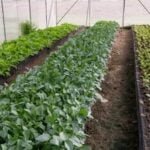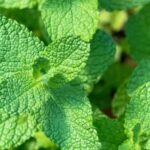When it comes to maintaining a thriving vegetable garden, using mulch is a crucial practice that gardeners should not overlook. Mulch serves multiple purposes in these gardens, from conserving soil moisture and preventing weed growth to regulating soil temperature and improving overall fertility.
With several types of mulch available on the market, it can be challenging to determine which one is best suited for your vegetable garden. This article aims to shed light on the use of cypress mulch in vegetable gardens, analyzing its properties, benefits, potential drawbacks, and environmental impact.
Before delving into cypress mulch specifics, it is essential to understand the role mulch plays in vegetable gardens. Mulching involves applying a layer of organic matter or synthetic material around the base of plants. It acts as a protective barrier against extreme weather conditions while trapping moisture in the soil.
Additionally, mulch prevents weeds from competing with vegetables for nutrients and aids in maintaining even soil temperatures throughout the growing season. Alongside these benefits, different types of mulch vary in their effectiveness and suitability for specific gardening needs.
One such type of mulch commonly used in vegetable gardens is cypress mulch. Cypress mulch is made from shredded cyprus trees and possesses distinctive properties that make it suitable for use as a gardening material. In this article, we will explore what exactly makes cypress mulch unique and discuss how it can benefit your vegetable garden.
However, before deciding to incorporate cypress mulch into your gardening routine, it is essential to weigh its pros and cons carefully. Understanding these factors will help you make an informed choice that aligns with your specific needs and preferences.
In summary, this article will provide an overview of the significance of utilizing mulch in vegetable gardens before focusing on cypress mulch as a potential option. By examining its properties and discussing its advantages and disadvantages, readers will gain a comprehensive understanding of whether cypress mulch is suitable for their vegetable gardens.
Additionally, topics such as the environmental impact of cypress mulch, alternatives to consider, and best practices for application will be covered. By the end of this article, you will have the necessary knowledge to make a well-informed decision about using cypress mulch in your vegetable garden.
What is Cypress Mulch?
Cypress Mulch is a popular type of mulch that is commonly used in a variety of gardening applications, including vegetable gardens. This section will provide a comprehensive description of Cypress mulch and discuss its properties and benefits.
Cypress mulch is made from the cypress tree, specifically from the bark and wood of the tree. It has a natural golden-brown color and has a fine texture, making it visually appealing when used as mulch in garden beds. The cypress tree is known for its durability and rot-resistant properties, which are transferred to the mulch.
One of the key benefits of using Cypress mulch in vegetable gardens is its ability to control weed growth. The thick layer of Cypress mulch serves as a barrier, preventing sunlight from reaching weed seeds and thus inhibiting their germination and growth. This reduces the competition for nutrients and water between weeds and vegetable plants, promoting healthier plant growth.
Cypress mulch also has good moisture-retention properties. It acts as an insulating layer on top of the soil, reducing moisture evaporation from the ground. This helps to conserve water in the soil, ensuring that vegetables have access to an adequate water supply even during hot or dry weather conditions.
In addition, Cypress mulch breaks down slowly over time, providing a long-lasting source of organic matter to the soil. As it decomposes, it improves soil structure by creating small air pockets which allow for better water drainage and root penetration. It also adds essential nutrients back into the soil as it breaks down, improving overall soil fertility.
However, there are some considerations to keep in mind when using Cypress mulch in vegetable gardens. Some studies suggest that Cypress trees are being overharvested for commercial purposes like mulching, which raises concerns about sustainability. Additionally, there has been some debate about whether certain chemicals used during processing may be harmful to plants or the environment.
It is recommended that gardeners source Cypress mulch from responsible suppliers who follow sustainable harvesting practices. It may also be beneficial to look for certified organic Cypress mulch, which ensures that no harmful chemicals or pesticides were used during production.
Overall, Cypress mulch can be a beneficial addition to vegetable gardens due to its weed control, moisture retention, and soil improvement properties. However, it is important to weigh the potential risks and benefits before deciding whether to use Cypress mulch in your specific garden.
Pros and Cons of Using Cypress Mulch in Vegetable Gardens
Cypress mulch is a popular choice for vegetable gardeners due to its many advantages. One of the biggest benefits of using Cypress mulch in vegetable gardens is its ability to retain moisture. This is especially important in hot and dry climates, as adequate moisture is crucial for the healthy growth of vegetables. By trapping moisture in the soil, Cypress mulch helps reduce the need for frequent watering, conserving water resources and saving gardeners time and effort.
In addition to its water retention properties, Cypress mulch also acts as an effective weed suppressor. The dense nature of Cypress mulch prevents sunlight from reaching weed seeds, inhibiting their germination and growth. This significantly reduces weed competition with vegetable plants, allowing them to thrive without having to compete for resources.
Another advantage of using Cypress mulch in vegetable gardens is its natural insect-repellent properties. Cypress trees contain natural compounds such as cedrol, which act as a deterrent to insects like ants, termites, and even mosquitoes. This can help protect vegetables from damage caused by pests, reducing the need for chemical insecticides.
While there are numerous advantages to using Cypress mulch in vegetable gardens, it’s important to consider some potential drawbacks as well. One concern often raised about Cypress mulch is its environmental impact. Some environmentalists argue that harvesting cypress trees for mulch production can have detrimental effects on wetland ecosystems where cypress trees naturally grow. Additionally, Cypress mulch may have a higher initial cost compared to other types of organic mulches.
Despite these concerns, many reputable sources suggest that responsibly harvested and sourced Cypress mulch can still be an environmentally sustainable option. Using certified sustainably sourced Cypress mulch or alternative locally available organic materials can help mitigate any environmental concerns associated with its use.
Factors to Consider
When deciding whether to use Cypress mulch in your vegetable garden, there are several factors that need to be considered. These factors will help you assess the suitability of Cypress mulch for your specific gardening needs and ensure that you make an informed choice.
One important factor to consider is the environmental impact of the mulch. Cypress trees are native to wetland areas, and their harvesting for mulch has raised concerns about habitat destruction and loss of biodiversity. If sustainable sourcing is a priority for you, it may be worth exploring alternative mulching options.
Another factor to consider is the availability and cost of Cypress mulch. Depending on your location, Cypress mulch may not be readily available or could come at a higher price compared to other types of mulch. It’s essential to consider your budget and accessibility when making a decision.
Furthermore, it’s crucial to evaluate the specific needs of your vegetable garden in terms of moisture retention and disease prevention. Cypress mulch is known for its excellent water retention properties, which can be beneficial in dry climates or during periods of drought. However, some gardeners have reported potential issues with fungal diseases when using Cypress mulch, so if you are dealing with certain fungal issues in your garden, it may be worth considering alternatives.
In addition to these factors, it’s also important to consider any personal preferences or aesthetics related to the use of Cypress mulch. Some gardeners may prefer the natural color and texture that Cypress mulch provides, while others may prioritize different attributes such as weed suppression or soil improvement.
By taking all these factors into account, you can make a more informed decision about whether Cypress mulch is suitable for your vegetable garden. It’s important to weigh the advantages and disadvantages carefully before making a final choice. In the next section, we will explore in more depth how Cypress mulch can impact soil health and nutrient availability in vegetable gardens.
The Impact of Cypress Mulch on Soil Health and Nutrient Availability
Effects on Soil Structure and Fertility
One of the key considerations when using any type of mulch in a vegetable garden is its impact on soil health. Cypress mulch has several properties that can positively affect soil structure and fertility. Firstly, it helps to improve soil moisture retention by reducing evaporation and preventing water runoff. This is especially beneficial for vegetable gardens, as consistent moisture levels support the growth and development of plants.
Cypress mulch also acts as a natural insulator, regulating soil temperature by keeping it cooler in hot weather and warmer in cold weather. This can create an ideal environment for plant roots, promoting healthy root development and overall plant growth. Additionally, the use of Cypress mulch can contribute to the suppression of weeds, which protects vegetables from competition for nutrients and ensures that they receive optimal access to resources.
Furthermore, as Cypress mulch decomposes over time, it enhances soil structure by increasing organic matter content. This improves the soil’s ability to retain essential nutrients and allows for better water penetration and root penetration. The increased organic matter also supports beneficial microbial activity in the soil, fostering a healthier ecosystem for plants to thrive.
Potential Impact on Nutrient Availability
While Cypress mulch offers several benefits for soil health, there are considerations regarding its potential impact on nutrient availability. It is important to note that Cypress wood naturally contains lignin, which is resistant to decomposition. As a result, this mulch may take longer to break down compared to other organic materials used as mulch.
This slower decomposition rate may limit the availability of certain nutrients initially because the microorganisms responsible for breaking down organic matter require nitrogen during the decomposition process. However, over time, as decomposition occurs and these microorganisms complete their work more efficiently, nitrogen becomes readily available again.
To counterbalance this potential limitation in nutrient availability when using Cypress mulch in vegetable gardens, it is recommended to supplement the soil with additional organic matter and nitrogen-rich fertilizers as needed. Regular soil testing can also help monitor nutrient levels and adjust accordingly. By providing adequate nutrition through these measures, the potential nutrient limitation associated with Cypress mulch can be effectively mitigated.
Ultimately, the impact of Cypress mulch on nutrient availability varies depending on various factors such as the health of the soil, plant requirements, and supplemental care provided. Therefore, it is essential for gardeners to closely monitor their vegetable gardens and make informed decisions regarding nutrient management when using Cypress mulch.
Potential Risks and Controversies Surrounding Cypress Mulch Usage
Cypress Mulch and Deforestation
One of the main controversies surrounding Cypress mulch usage is its impact on deforestation. Cypress trees, particularly the bald cypress (Taxodium distichum) and pond cypress (Taxodium ascendens) species, are slow-growing and long-lived trees that are typically found in wetland habitats. These trees play a vital role in providing habitat for numerous species, improving water quality, and offering protection against storms and flooding.
Due to the high demand for Cypress mulch, especially in landscaping projects, there has been an increase in the harvesting of cypresses from natural habitats. This has resulted in concerns about habitat destruction and loss of biodiversity. In some cases, these harvestings have occurred without proper ecological considerations or sustainable management practices.
Possible Soil Acidification
Another potential risk associated with Cypress mulch usage is soil acidification. Cypress mulch has naturally high levels of tannins and lignins, which can leach into the soil over time. This can result in a decrease in soil pH levels, making it more acidic.
While some plants thrive in slightly acidic soils, such as blueberries and azaleas, many vegetable crops prefer neutral to slightly alkaline soil conditions. Therefore, it is important for vegetable gardeners to monitor their soil pH when using Cypress mulch and adjust it if necessary to ensure optimal growing conditions for their crops.
Residual Pesticides or Fungicides
Concerns have also been raised about the potential presence of residual pesticides or fungicides in Cypress mulch. Some manufacturers may treat cypress wood with chemicals to prevent decay or deter pests during storage or transportation processes. These chemicals can potentially remain on the wood fibers even after processing into mulch.
To minimize any risks associated with residual chemicals, it is advisable for gardeners to source their Cypress mulch from reputable suppliers who follow proper processing and treatment guidelines. Alternatively, gardeners may consider using organic mulch options, such as straw or compost, to ensure the absence of any potentially harmful chemicals in their vegetable gardens.
It is essential for vegetable gardeners to be aware of these potential risks and controversies associated with Cypress mulch usage. By understanding these concerns, gardeners can make informed decisions about whether to use Cypress mulch or explore alternative mulching options that align with their values and priorities.
Alternatives to Cypress Mulch in Vegetable Gardens
When it comes to selecting mulch for your vegetable garden, Cypress mulch is not the only option available. There are several alternatives that can be just as effective in providing the necessary benefits to your plants. Here are a few alternatives to consider:
- Straw: Straw is one of the most commonly used mulches in vegetable gardens. It is affordable, easy to find, and provides good insulation for plants during cold weather. Straw also helps retain soil moisture and prevent weed growth. When using straw as mulch, make sure to spread it evenly around your plants and avoid piling it too thickly, as this can lead to excessive moisture retention and potential disease issues.
- Wood Chips: Wood chips are another popular choice for mulching vegetable gardens. They help conserve soil moisture, suppress weed growth, and gradually break down over time, enriching the soil with organic matter.
However, it’s important to note that fresh wood chips can temporarily deplete nitrogen from the soil as they undergo decomposition. To mitigate this issue, it is recommended to allow wood chips to age for several months or mix them with high-nitrogen materials like grass clippings before applying them as mulch. - Grass Clippings: If you have a lawn or access to fresh grass clippings, they can make an excellent mulch for your vegetable garden. Grass clippings help keep the soil cool, retain moisture, and add nutrients back into the soil as they decompose. It is important to use grass clippings that have not been treated with herbicides or pesticides if you plan on using them as mulch.
- Compost: Using compost as mulch has multiple benefits for your vegetable garden. It improves soil structure, retains moisture, suppresses weeds, and adds valuable nutrients back into the soil. You can either create your own compost pile or purchase compost from a local garden center. When applying compost as mulch, ensure a layer of about 2 to 3 inches and avoid piling it directly against the plant stems.
Before deciding on an alternative mulch for your vegetable garden, consider factors such as availability, cost, and the specific needs of your plants. Each option has its own advantages and drawbacks, so it’s important to choose the one that aligns best with your gardening goals. Experimenting with different options can also be a great way to find out what works best for your specific vegetable garden.
Applying Cypress Mulch in Vegetable Gardens
When it comes to applying Cypress mulch in vegetable gardens, there are a few best practices and tips to keep in mind for optimal results. Here is a step-by-step guide on how to properly apply Cypress mulch and some recommendations to ensure success.
- Prepare the Soil: Before applying Cypress mulch, it’s important to prepare the soil properly. Remove any weeds or debris and loosen the soil with a garden fork or tiller. This will provide a clean and healthy environment for your vegetable plants.
- Apply an Even Layer: Once the soil is prepared, spread a layer of Cypress mulch around your vegetable plants. It’s recommended to apply a layer about 2-3 inches thick. Be careful not to pile the mulch up against the stems of your plants as this can cause moisture-related diseases.
- Leave Space Around Stems: When applying Cypress mulch, leave some space around the stems of your vegetable plants. This will help prevent rotting and promote good air circulation around the base of the plant.
- Reapply When Necessary: Over time, Cypress mulch may break down or get washed away by rain or irrigation. Keep an eye on your mulch layer and reapply as needed to maintain a consistent depth.
- Water Properly: Remember to water your vegetable garden properly even when using Cypress mulch. The mulch will help retain moisture in the soil, but you should still water regularly to ensure that your plants receive enough hydration.
In addition to these best practices, here are some tips for using Cypress mulch in vegetable gardens:
- Consider Using Edible Mulches: If you want to take advantage of extra benefits from your mulch, consider using edible options such as straw or compost instead of Cypress mulch.
- Monitor for Pests: While Cypress mulch has natural properties that may deter certain pests, it’s still important to monitor your vegetable garden for any signs of pest infestation and take appropriate action.
- Rotate Mulching Materials: To maintain a healthy soil ecosystem, consider rotating different types of mulch in your vegetable garden. This will help prevent nutrient imbalances and reduce the risk of pests or diseases becoming resistant to a specific type of mulch.
By following these best practices and tips, you can apply Cypress mulch effectively in your vegetable garden and help promote healthy plant growth. Remember, every garden is unique, so it’s important to consider your specific needs and preferences when deciding whether Cypress mulch is the right choice for you.
Conclusion
In conclusion, when considering the use of Cypress mulch in vegetable gardens, it is important to make an informed choice based on your specific needs and preferences. Throughout this article, we explored the role of mulch in vegetable gardens and discussed the properties and benefits of Cypress mulch.
Cypress mulch offers numerous advantages for vegetable gardens, such as its ability to inhibit weed growth, retain moisture, regulate soil temperature, and enhance the aesthetic appeal of the garden. However, there are also potential concerns associated with its use, including its sourcing from endangered cypress trees and the controversies surrounding its environmental impact.
It is crucial to take into account various factors when selecting mulch for your vegetable garden. Considerations such as availability, cost-effectiveness, sustainability, and compatibility with local climate conditions should be weighed alongside any potential risks or controversies associated with Cypress mulch. Additionally, alternative options like pine straw or straw mulch can provide similar benefits without contributing to environmental concerns.
Ultimately, making an informed choice for your vegetable garden requires careful consideration of all factors involved. It may be worthwhile to consult local gardening experts or reach out to sustainable gardening organizations for advice on choosing a suitable mulching option. By doing so, you can ensure that your vegetable garden thrives while also minimizing any negative impacts on the environment.
Frequently Asked Questions
Is cypress mulch safe for a vegetable garden?
Cypress mulch can generally be considered safe for a vegetable garden. It is derived from cypress trees and is popular for its durability, aesthetic appeal, and ability to suppress weeds. However, there are a few considerations to keep in mind. Some cypress mulch products may contain certain chemicals or additives that could potentially leach into the soil over time.
It is important to choose a reputable source and ensure that the mulch is free from any harmful substances. Additionally, cypress mulch has been associated with the potential spread of fungal diseases like Fusarium wilt in some cases. Therefore, it is advisable to use proper sanitation practices and avoid using cypress mulch if you have had issues with such diseases in your garden.
Can you use cypress mulch around tomato plants?
Yes, you can use cypress mulch around tomato plants. Cypress mulch offers several benefits when used around tomato plants in particular. It helps conserve moisture in the soil by reducing evaporation, prevents weed growth that could compete for nutrients and water, and acts as an insulator by moderating soil temperature fluctuations.
Additionally, cypress mulch breaks down slowly, which means it does not need frequent replenishment like some other organic mulches. However, as mentioned earlier, it is crucial to select a high-quality cypress mulch without any potential contaminants or fungal spores that could harm the tomato plants.
What is the best mulch for vegetable gardens?
The best mulch for vegetable gardens largely depends on individual preferences and specific garden conditions. Organic mulches such as straw, hay, grass clippings, shredded leaves, compost, and wood chips are commonly used in vegetable gardens due to their numerous benefits.
These types of mulches help retain moisture in the soil while regulating temperature fluctuations throughout the growing season. They also gradually decompose over time and contribute valuable organic matter back into the soil structure.

If you’re looking to get into vegetable gardening, or are just looking for some tips on how to make your current garden better, then you’ve come to the right place! My name is Ethel and I have been gardening for years. In this blog, I’m going to share with you some of my best tips on how to create a successful vegetable garden.





